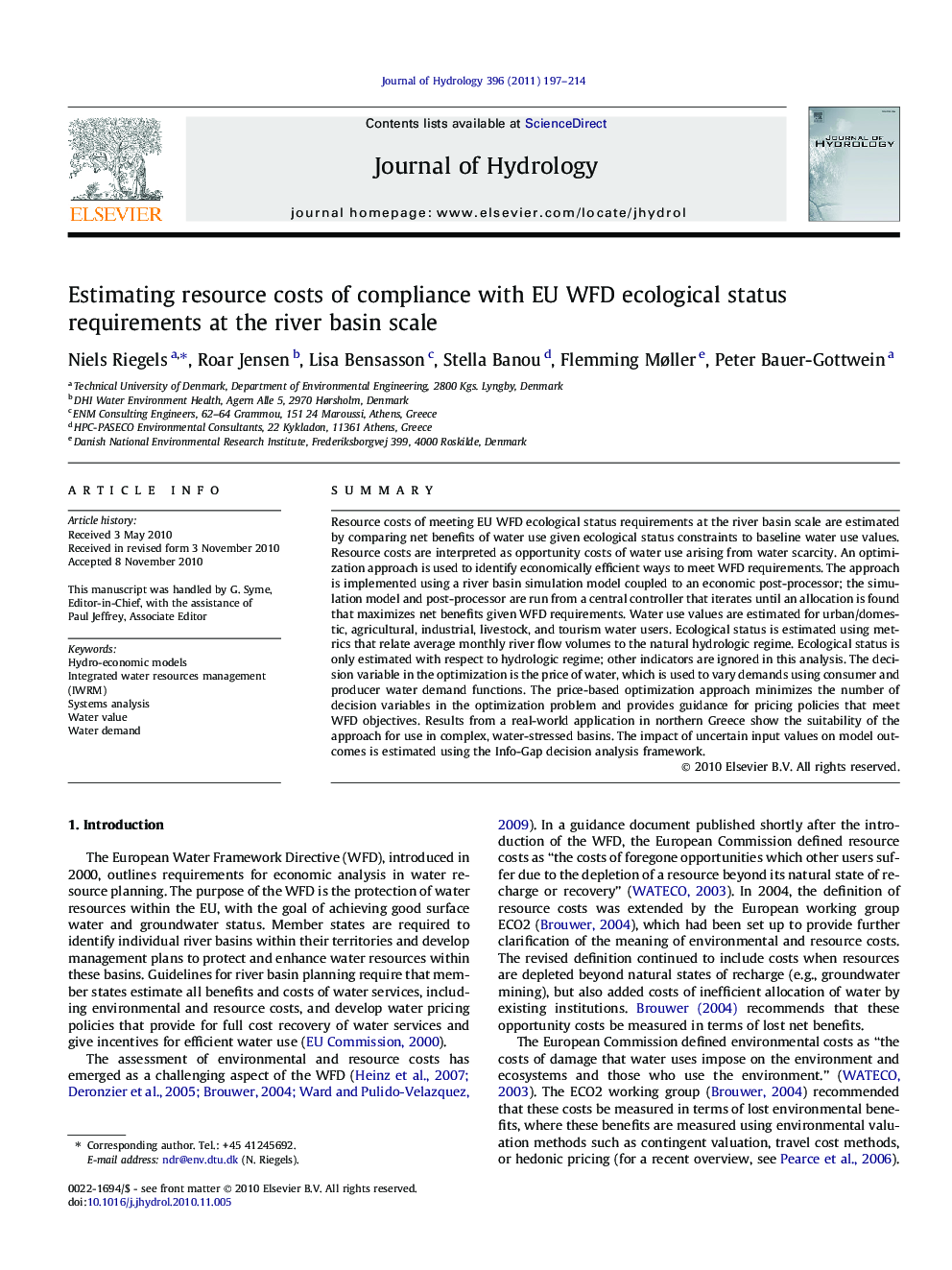| Article ID | Journal | Published Year | Pages | File Type |
|---|---|---|---|---|
| 4577885 | Journal of Hydrology | 2011 | 18 Pages |
SummaryResource costs of meeting EU WFD ecological status requirements at the river basin scale are estimated by comparing net benefits of water use given ecological status constraints to baseline water use values. Resource costs are interpreted as opportunity costs of water use arising from water scarcity. An optimization approach is used to identify economically efficient ways to meet WFD requirements. The approach is implemented using a river basin simulation model coupled to an economic post-processor; the simulation model and post-processor are run from a central controller that iterates until an allocation is found that maximizes net benefits given WFD requirements. Water use values are estimated for urban/domestic, agricultural, industrial, livestock, and tourism water users. Ecological status is estimated using metrics that relate average monthly river flow volumes to the natural hydrologic regime. Ecological status is only estimated with respect to hydrologic regime; other indicators are ignored in this analysis. The decision variable in the optimization is the price of water, which is used to vary demands using consumer and producer water demand functions. The price-based optimization approach minimizes the number of decision variables in the optimization problem and provides guidance for pricing policies that meet WFD objectives. Results from a real-world application in northern Greece show the suitability of the approach for use in complex, water-stressed basins. The impact of uncertain input values on model outcomes is estimated using the Info-Gap decision analysis framework.
Research highlights► Resource costs of complying with EU Water Framework Directive ecological status requirements are estimated. ► Price-based optimization approach is presented as a tool for simplifying optimization and for design of water pricing policies that meet EU WFD objectives. ► Optimization approach is presented that couples hydrologic simulation model with economic optimization model. ► Impact of uncertainty on model results is analyzed using Info-Gap approach.
